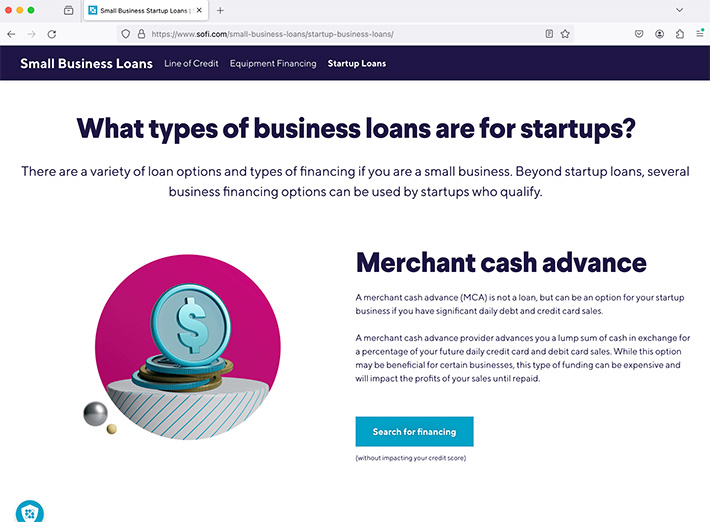Articles by deBanked Staff
FCC’s Attempt to Close ‘Lead Generator Loophole’ is Stricken Down
January 30, 2025The FCC’s one-to-one consent rule has been stricken down by the U.S. Court of Appeals for the Eleventh Circuit. It was supposed to go into effect this past Monday and would have impacted lead generators in a major way. For example, the FCC rule stated that a consumer could not consent to a telemarketing or advertising robocall unless: (1) the consumer consents to calls from only one entity at a time, and (2) consents only to calls whose subject matter is “logically and topically associated with the interaction that prompted the consent.”
The Court in Insurance Marketing Coalition Limited v FCC, however, found that the FCC did not have the authority to redefine “prior express consent” under the TCPA to now mean one-to-one consent and vacated the rule.
deBanked put out a post last year telling readers to be prepared for the change.
Steve Sheinbaum to Speak at deBanked CONNECT MIAMI
January 29, 2025Stephen Sheinbaum, CEO of Circadian Funding, will be speaking at deBanked CONNECT MIAMI on February 20 at the Fontainebleau in Miami Beach.
Sheinbaum is a fintech veteran with 20 years of industry experience building investment products, platforms, programs and companies. As the former founder and CEO of Merchant Cash and Capital/Bizfi, he has funded and brokered approximately $4 billion for small businesses in the US, as well as lauching Japan’s first MCA venture. He is currently the CEO of Circadian Funding, LLC where he helps companies of all sizes access secured and unsecured capital. Stephen has appeared on, among others, CNBC, Fox and Bloomberg business shows, as well as being a main stage speaker at Finovate and other large fintech shows.

To register for the event, click here.
MCAs Mentioned on SoFi’s Website
January 28, 2025Ever since SoFi launched a business loan marketplace last year, it has not been spoken about at length in its quarterly reports. It did not come up at all in its Q4 earnings call yesterday, for example. What is known is that it refers business owners to other sources for lines of credit, equipment financing, and more. However, there’s also an MCA screen on the scrolling window where it asks people to apply.

SoFi is notable in that it’s a bank, which is why it’s worth mentioning this at all. “Since acquiring our bank license in 2022, we’ve grown our deposits to $26 billion by iterating, learning, and iterating to make our product, marketing, and service better every day,” the company said yesterday.
Maryland, Illinois Reintroduce Commercial Finance Bills
January 27, 2025On January 24, legislators in both Illinois and Maryland introduced the latest edition of commercial finance bills. In Illinois it’s the Small Business Financing Transparency Act which would mandate that sales-based finance providers register with the state and include an APR on every agreement. In Maryland it’s the Small Business Truth in Lending Act which is a renewal of its push from 2024.
With Trump’s Freeze on New Regulations, What to Make of the New CFPB Rules?
January 23, 2025 On January 20, Trump’s ceremonial display of taking action and signing orders on his very first day might warrant a closer look for those in the small business finance industry. That’s because he signed a regulatory freeze order that could potentially affect rules promulgated by the CFPB on small business loan data collection that have yet to go into effect.
On January 20, Trump’s ceremonial display of taking action and signing orders on his very first day might warrant a closer look for those in the small business finance industry. That’s because he signed a regulatory freeze order that could potentially affect rules promulgated by the CFPB on small business loan data collection that have yet to go into effect.
Specifically Trump’s order not only puts a freeze on issuing new rules but also mandates rules be withdrawn if they’ve been sent to the Office of the Federal Register. And then lastly, and most relevant, it orders agency heads to “consider postponing” any rules that have been published or “any rules that have been issued in any manner but have not taken effect, for the purpose of reviewing any questions of fact, law, and policy that the rules may raise.” It asks for a 60-day review period overseen by an agency head appointed or designated by Trump to review and approve the rule.
“Should actions be identified that were undertaken before noon on January 20, 2025, that frustrate the purpose underlying this memorandum, I may modify or extend this memorandum, to require that department and agency heads consider taking steps to address those actions,” the order concludes.
Seventy Five Percent of Small Businesses Expect to Do Better in the Coming Year
January 17, 2025 2025 is looking up. That’s one takeaway from the recent State of Small Business Report produced by IOU Financial. More than 75% of small business owners that responded to a survey said that they expected to do better in the coming year, with 42% expecting to do much better. Meanwhile, more than three-fourths of those surveyed plan to invest in their business within the next six months.
2025 is looking up. That’s one takeaway from the recent State of Small Business Report produced by IOU Financial. More than 75% of small business owners that responded to a survey said that they expected to do better in the coming year, with 42% expecting to do much better. Meanwhile, more than three-fourths of those surveyed plan to invest in their business within the next six months.
Still, cost of goods and interest rates ranked among the highest concerns. Eighty two percent said that they are very or somewhat concerned about cost of goods and seventy seven percent said the same about interest rates.
To read the full report, click here.
Fifty Percent of Equipment Finance “Originators” Earned More Than $200k Last Year, Survey Finds
January 8, 2025 Wheeler Business Consulting LLC released the results of its 9th annual equipment finance compensation and production survey to reveal how originators did last year. Fifty percent of all those surveyed earned more than $200,000 last year in compensation, with nearly half of that group earning more than $300,000. Twenty three precent of all those surveyed worked 100% on commission with no base compensation at all while 71% had a base salary and supplemented it with commissions and bonuses.
Wheeler Business Consulting LLC released the results of its 9th annual equipment finance compensation and production survey to reveal how originators did last year. Fifty percent of all those surveyed earned more than $200,000 last year in compensation, with nearly half of that group earning more than $300,000. Twenty three precent of all those surveyed worked 100% on commission with no base compensation at all while 71% had a base salary and supplemented it with commissions and bonuses.
“The sample group was made up of 32% bank originators, 47% originators from independent finance and leasing companies, and 21% from syndication/broker companies,” Wheeler said. “The survey included 16% of originators with less than 5 years of experience, 15% of originators with 5 to 10 years of experience, and 69% with 10 years or more of experience.”
“The survey confirmed that the commercial equipment leasing and finance industry remains a lucrative opportunity for originators,” it added.
This survey is often broadcast in Leasing News.
Wheeler Business Consulting was founded by Scott Wheeler, CLFP.
New Jersey Bill’s New Definition of “Commercial Financing”
January 2, 2025New Jersey Senate Bill 1397 is still alive in 2025. This particular commercial financing disclosure bill intends to require APR disclosures for a broad range of products in commercial financing, including non-loan products.
“Commercial financing means an open-end financing, closed-end financing, sales-based financing, factoring transaction, finance lease, as that term is defined in N.J.S.12A:2A-103, or any other form of financing, the proceeds of which the recipient does not intend to use primarily for personal, family, or household purposes,” the bill says.
Previously, there was a provision in the bill that allowed covered parties to use a “total dollar cost” disclosure OR the APR. The total dollar cost option was removed in a December 19 amendment.






























